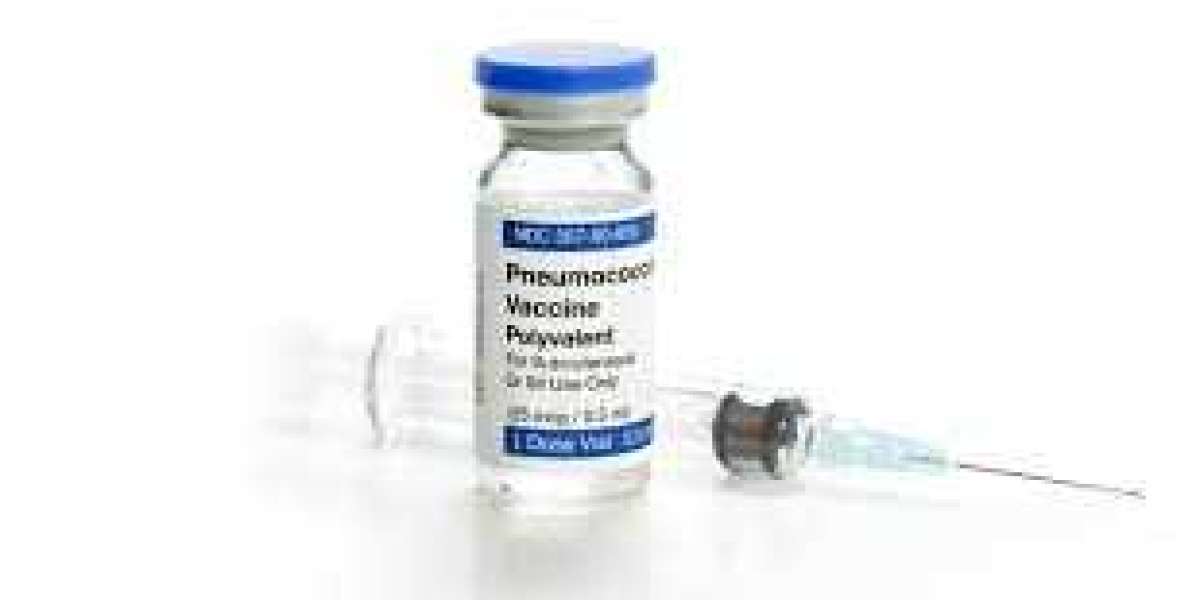Know about Pneumococcal Vaccination
Pneumococcal bacteria (Streptococcus pneumoniae) primarily infect newborns, toddlers, and the elderly. Meningitis (inflammation of the brain lining), bloodstream infections, and pneumonia (infection of the lungs) are all caused by pneumococcus.
Infants and young children under the age of two are most vulnerable to serious infection because they lack the ability to acquire immunity to the sugar (or polysaccharide) that coats the bacteria, which older children can do once they reach the age of two.
As a result, the pneumococcal vaccine developed in a manner comparable to the Hib vaccine. A harmless protein is connected to the pneumococcal polysaccharide. The pneumococcal conjugate vaccine is the name given to this variant of the vaccination. Once linked, young children may develop an immune reaction against the polysaccharide. Pneumonia symptoms include a high fever, coughing, and fast, difficult breathing.
Empyema – pus between lung and chest wall
Sepsis (bloodstream infections)
Meningitis (inflammation of the lining of the brain)
Antibiotics don’t always work
Disease can be fatal
Benefits of the pneumococcal vaccine
In a major trial of children injected with the vaccination, the pneumococcal vaccine was found to be highly successful in avoiding serious pneumococcal illness (meningitis, bloodstream infections, and pneumonia).
A second type of pneumococcal vaccination, known as the pneumococcal polysaccharide vaccine, protects against more types of pneumococcus (23 types), but lacks the benign protein, therefore it is usually used in elderly persons or those who are at higher risk for pneumococcus.
The side effects of the pneumococcal vaccine
After receiving the pneumococcal vaccine, children may experience soreness or swelling where the shot was given, as well as low-grade fever, decreased appetite, and irritability. One in every hundred children will suffer a high fever.
Young children who receive both the pneumococcal vaccine and the inactivated flu vaccine (shot) may be more likely to have a seizure linked with a high fever, known as a febrile seizure. Although frightening, febrile seizures have no long-term consequences.
Can adults get the pneumococcal vaccine?
Adults who are categorised in below points should get the pneumococcal vaccine (conjugate and polysaccharide):
65 years and older are at high risk of pneumococcal infections
without a functioning spleen
immune compromised by disease, chemotherapy or steroids
HIV positive-
smoke or alcoholic
heart or lung disease, liver disease, asthma, diabetes or cancer
Dr.Vipin Jain is one of the Best Child Doctors in Noida. With the care of newborn babies, Dr.Vipin Jain provides the best healthcare services and Vaccination for adults in Noida. Book an appointment or find a walk-in clinic today. All the vaccines are currently available for eligible patients of all ages.
Know about Pneumococcal Vaccination
Pneumococcal bacteria (Streptococcus pneumoniae) primarily infect newborns, toddlers, and the elderly. Meningitis (inflammation of the brain lining), bloodstream infections, and pneumonia (infection of the lungs) are all caused by pneumococcus.
Infants and young children under the age of two are most vulnerable to serious infection because they lack the ability to acquire immunity to the sugar (or polysaccharide) that coats the bacteria, which older children can do once they reach the age of two.
As a result, the pneumococcal vaccine developed in a manner comparable to the Hib vaccine. A harmless protein is connected to the pneumococcal polysaccharide. The pneumococcal conjugate vaccine is the name given to this variant of the vaccination. Once linked, young children may develop an immune reaction against the polysaccharide. Pneumonia symptoms include a high fever, coughing, and fast, difficult breathing.
Empyema – pus between lung and chest wall
Sepsis (bloodstream infections)
Meningitis (inflammation of the lining of the brain)
Antibiotics don’t always work
Disease can be fatal
Benefits of the pneumococcal vaccine
In a major trial of children injected with the vaccination, the pneumococcal vaccine was found to be highly successful in avoiding serious pneumococcal illness (meningitis, bloodstream infections, and pneumonia).
A second type of pneumococcal vaccination, known as the pneumococcal polysaccharide vaccine, protects against more types of pneumococcus (23 types), but lacks the benign protein, therefore it is usually used in elderly persons or those who are at higher risk for pneumococcus.
The side effects of the pneumococcal vaccine
After receiving the pneumococcal vaccine, children may experience soreness or swelling where the shot was given, as well as low-grade fever, decreased appetite, and irritability. One in every hundred children will suffer a high fever.
Young children who receive both the pneumococcal vaccine and the inactivated flu vaccine (shot) may be more likely to have a seizure linked with a high fever, known as a febrile seizure. Although frightening, febrile seizures have no long-term consequences.
Can adults get the pneumococcal vaccine?
Adults who are categorised in below points should get the pneumococcal vaccine (conjugate and polysaccharide):
65 years and older are at high risk of pneumococcal infections
without a functioning spleen
immune compromised by disease, chemotherapy or steroids
HIV positive-
smoke or alcoholic
heart or lung disease, liver disease, asthma, diabetes or cancer
Dr.Vipin Jain is one of the Best Child Doctor in Noida. With the care of newborn babies, Dr.Vipin Jain provides the best healthcare services and Vaccination for adults in Noida. Book an appointment or find a walk-in clinic today. All the vaccines are currently available for eligible patients of all ages.
Also Visit us :-








